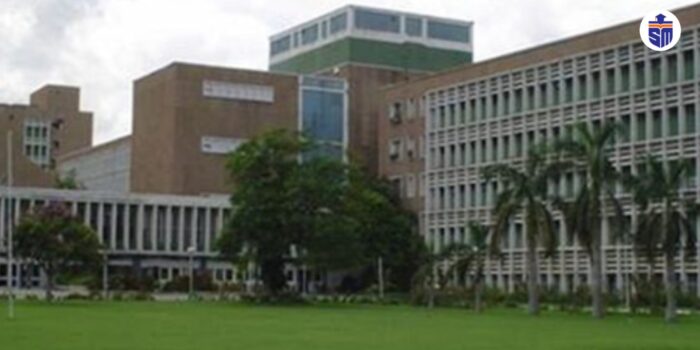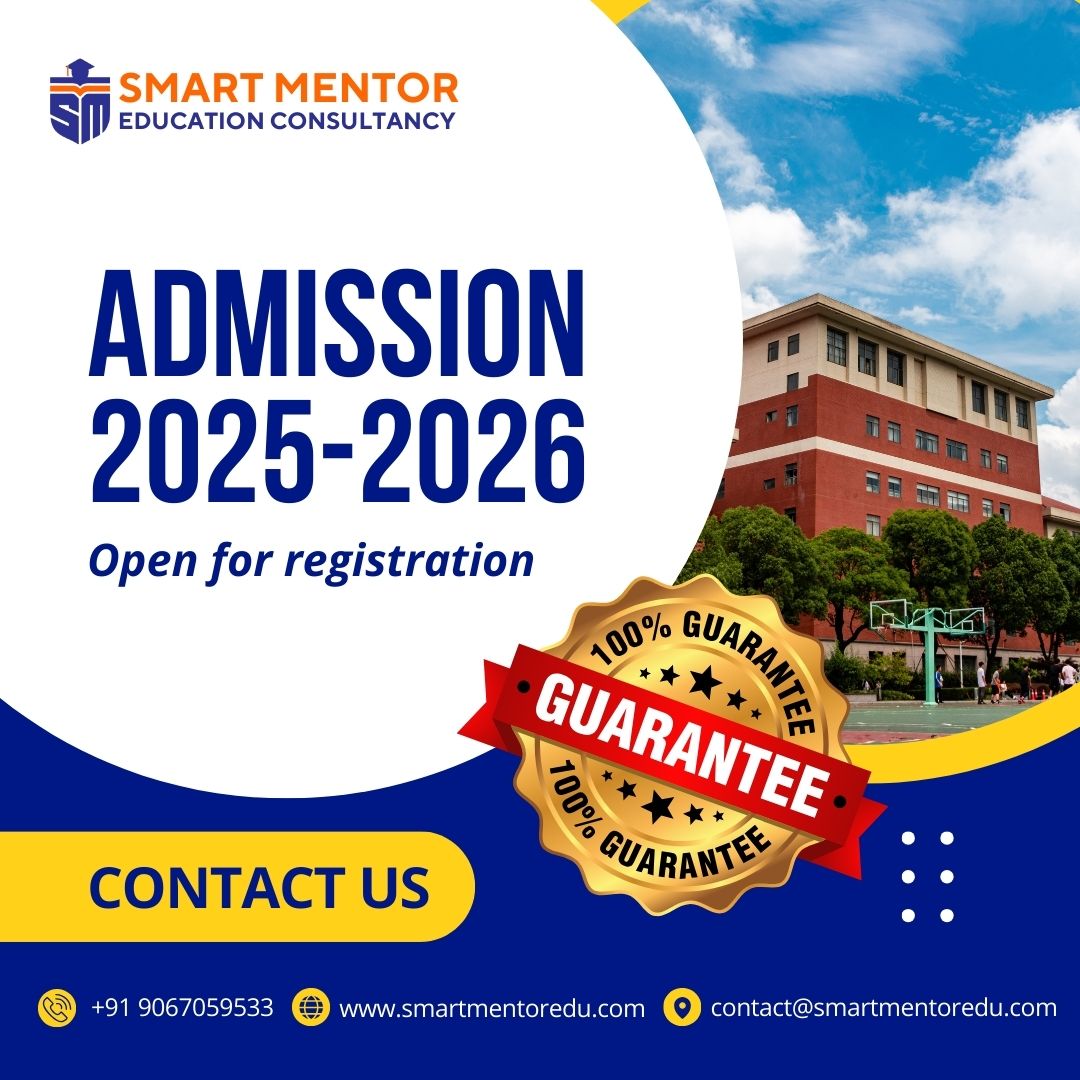

National Eligibility cum Entrance Test – Postgraduate (NEET-PG) – Comprehensive Guide
The National Eligibility cum Entrance Test for Postgraduates (NEET-PG) is India’s unified entrance examination for admission to MD/MS/DNB and Postgraduate Diploma courses across all government, private, and deemed universities in India. Conducted by the National Board of Examinations (NBE), NEET-PG has replaced multiple postgraduate medical entrance exams previously conducted by different states and institutions.
NEET-PG Exam Pattern
- Mode: Computer-Based Test (CBT)
- Duration: 3 hours 30 minutes (210 minutes)
- Total Questions: 200 Multiple Choice Questions (MCQs)
- Subjects Covered: Questions from entire MBBS curriculum
- Pre-Clinical (15-20%)
- Para-Clinical (15-20%)
- Clinical (60-70%)
- Marking Scheme:
- +4 for each correct answer
- -1 for each incorrect answer (negative marking)
- 0 for unanswered questions
- Maximum Marks: 800
- Language: English only
- Question Types: Multiple choice with single correct answer
- Exam Frequency: Typically held once a year (dates announced by NBE)
NEET-PG Syllabus and Important Topics
1. Pre-Clinical Subjects (15-20%)
- Anatomy:
- Gross Anatomy
- Neuroanatomy
- Embryology
- Histology
- Genetics
- Radiological Anatomy
- Surface Anatomy
- Physiology:
- General Physiology
- Nerve Muscle Physiology
- Blood
- Cardiovascular System
- Respiratory System
- Excretory System
- Digestive System
- Endocrinology
- Reproductive System
- Central Nervous System
- Special Senses
- Biochemistry:
- Cell Biology
- Enzymes
- Biological Oxidation
- Metabolism of Carbohydrates, Proteins, Lipids
- Vitamins and Minerals
- Acid-Base Balance
- Molecular Biology
- Nutrition
- Immunology
2. Para-Clinical Subjects (15-20%)
- Pharmacology:
- General Pharmacology
- Autonomic Nervous System
- Cardiovascular System
- Central Nervous System
- Autacoids
- Respiratory System
- Gastrointestinal System
- Chemotherapy
- Endocrinology
- Toxicology
- Pathology:
- General Pathology
- Hematology
- Systemic Pathology
- Clinical Pathology
- Cytopathology
- Microbiology:
- General Microbiology
- Immunology
- Systematic Bacteriology
- Virology
- Mycology
- Parasitology
- Applied Microbiology
- Forensic Medicine:
- Forensic Pathology
- Clinical Forensic Medicine
- Medical Jurisprudence
- Toxicology
- Community Medicine:
- Concepts in Community Health
- Epidemiology
- Biostatistics
- Environmental Health
- Occupational Health
- Nutrition and Health
- Communicable Diseases
- Non-Communicable Diseases
- Health Programs in India
- Health Administration
- Health Education
3. Clinical Subjects (60-70%)
- Medicine & Allied Specialties:
- General Medicine
- Cardiology
- Neurology
- Gastroenterology
- Nephrology
- Endocrinology
- Hematology
- Infectious Diseases
- Rheumatology
- Psychiatry
- Dermatology
- Respiratory Medicine
- Surgery & Allied Specialties:
- General Surgery
- Orthopedics
- Urology
- Neurosurgery
- Otorhinolaryngology (ENT)
- Ophthalmology
- Anesthesiology
- Radiodiagnosis
- Radiotherapy
- Obstetrics & Gynecology:
- Obstetrics
- Gynecology
- Family Planning & Contraception
- Pediatrics:
- Neonatology
- Growth & Development
- Childhood Diseases
- Immunization
- Pediatric Emergencies
High-Yield Topics for NEET-PG
Medicine
- Infectious Diseases (Tuberculosis, Malaria, Dengue, HIV)
- Cardiology (ECG Interpretation, Valvular Heart Diseases, Coronary Artery Disease)
- Neurology (Stroke, Meningitis, Epilepsy)
- Endocrinology (Diabetes Mellitus, Thyroid Disorders)
- Nephrology (CKD, Nephrotic Syndrome)
- Respiratory (COPD, Bronchial Asthma, Pneumonia)
- Rheumatology (Rheumatoid Arthritis, SLE)
- Gastroenterology (Viral Hepatitis, IBD)
Surgery
- Surgical Pathology
- Trauma Management
- Hernias
- Intestinal Obstruction
- Breast Diseases
- Thyroid Disorders
- Peripheral Vascular Diseases
- Pre and Post-operative Care
Obstetrics & Gynecology
- Antenatal Care
- Labor & Delivery Complications
- Pregnancy-Induced Hypertension & Preeclampsia
- PCOS
- Contraception
- Menstrual Disorders
- Gynecological Malignancies
Pediatrics
- Neonatal Resuscitation
- Growth & Development
- Immunization
- Acute Respiratory Infections
- Congenital Heart Diseases
- Childhood Exanthems
- Malnutrition
- Fluid & Electrolyte Management
Pre & Para-Clinical Subjects
- Nerve-Muscle Physiology
- Diabetes Biochemistry
- General Pharmacology & Autonomic Nervous System
- Antimicrobials
- General Pathology
- Immunology
- Medical Statistics
- National Health Programs
Preparation Strategy for NEET-PG
1. Recommended Study Materials & Resources
Essential Resources:
- Review Books:
- NEET-PG Essential Notes (Marrow/PrepLadder/DAMS)
- Subject-wise Standard Textbooks for Reference
- Previous Year Questions with Explanations
- Question Banks:
- Prep-Specific Question Banks (Marrow/PrepLadder/DAMS)
- Subject-Wise Question Banks
- Grand Test Series
- Online Resources:
- Digital Preparation Platforms (Marrow, PrepLadder, DAMS)
- Mobile Apps for Quick Revision
- Video Lectures on Difficult Topics
- Subject-wise References:
- Medicine: Alagappan, Harrison’s (Reference)
- Surgery: Manipal Manual, SRB’s Manual
- OBG: Sakshi Arora, Dutta
- Pediatrics: Ghai, Nelson (Reference)
- Orthopedics: Maheshwari
- Radiology: Dams Handwritten Notes
- Anesthesia: Murthy
2. Phase-wise Preparation Strategy
Foundation Phase (12-18 Months Before Exam)
- Cover entire MBBS curriculum systematically
- Focus on understanding concepts rather than memorization
- Create concise notes for future revision
- Begin with your strongest subjects to build confidence
- Take subject-wise tests after completing each subject
Intermediate Phase (6-12 Months Before Exam)
- First revision of all subjects
- Focus on high-yield topics and frequently tested areas
- Begin solving subject-wise question banks
- Start integrated study connecting different subjects
- Take regular subject tests and analyze performance
Advanced Phase (3-6 Months Before Exam)
- Second revision with focus on weak areas
- Solve more question banks and previous years’ questions
- Take regular mock tests (at least one per week)
- Focus on time management during tests
- Create quick revision notes for final phase
Final Phase (Last 3 Months)
- Rapid revisions of all subjects
- Daily mock tests or question practice
- Focus exclusively on high-yield topics
- Revise quick notes, formulas, and mnemonics
- Work on test-taking strategies and time management
3. Subject-wise Preparation Tips
Pre-Clinical Subjects
- Focus on diagrams and schema in Anatomy
- Understand physiological mechanisms rather than memorizing
- Pay special attention to clinical applications
- Focus on high-yield topics like nerve-muscle physiology
- For Biochemistry, focus on metabolic pathways and disorders
Para-Clinical Subjects
- In Pharmacology, focus on mechanisms of action and side effects
- For Pathology, understand pathophysiology of diseases
- In Microbiology, focus on laboratory diagnosis and treatment
- For Forensic Medicine, focus on medico-legal aspects
- In Community Medicine, focus on national health programs and statistics
Clinical Subjects
- Medicine: Focus on diagnostic approaches and management
- Surgery: Focus on clinical features and surgical management
- OBG: Pay special attention to obstetric emergencies
- Pediatrics: Focus on developmental milestones and immunization
- Understand diagnostic algorithms for common presentations
4. Time Management Strategies
- Create a realistic study schedule with built-in flexibility
- Allocate more time to high-weightage and difficult subjects
- Use the Pomodoro technique (25 minutes study, 5 minutes break)
- Schedule regular revision slots
- Practice with timers to improve exam speed
- Take short breaks between study sessions
- Maintain a healthy work-life balance to prevent burnout
5. Mock Tests and Question Practice
- Take at least 30-40 full-length mock tests
- Analyze each test thoroughly (both correct and incorrect answers)
- Maintain an error log to track repeated mistakes
- Practice previous years’ questions
- Focus on improving speed and accuracy
- Simulate actual exam conditions during mock tests
- Use mock test performance to identify weak areas
NEET-PG Preparation Timeline
18-24 Months Before Exam (Optional – For Early Starters)
- Begin with basic sciences and strongest subjects
- Create comprehensive notes
- Understand fundamental concepts
- Begin question practice for covered topics
12-18 Months Before Exam
- Complete first round of curriculum study
- Create subject-wise notes
- Begin solving basic question banks
- Take subject tests after completing each subject
- Start integrating clinical with basic sciences
6-12 Months Before Exam
- First revision of all subjects
- Focus on high-yield topics
- Begin solving advanced question banks
- Take subject-wise tests regularly
- Create quick revision notes
3-6 Months Before Exam
- Second revision with focus on weak areas
- Solve comprehensive question banks
- Take weekly mock tests
- Analyze and improve weak areas
- Focus on time management
Final 3 Months
- Daily mock tests or question practice
- Rapid revisions of all subjects
- Focus exclusively on high-yield topics
- Revise quick notes, diagrams, and mnemonics
- Improve test-taking strategies
Last Month
- Take full-length mock tests every alternate day
- Quick revisions of high-yield topics
- Focus on frequently repeated questions
- Mental preparation and stress management
- Light revision in the final week
Counseling Process After NEET-PG
All India Quota (AIQ) Counseling
- 50% seats in all government medical colleges (except in J&K)
- 100% seats in Deemed Universities and Central Institutions
- Conducted by Medical Counseling Committee (MCC)
- Usually conducted in 2-3 rounds followed by a stray vacancy round
State Quota Counseling
- 50% seats in government medical colleges of that state
- Conducted by respective state counseling authorities
- Eligibility typically requires state domicile
- Process varies by state but generally includes 2-3 rounds
Documentation Required
- NEET-PG Score Card
- MBBS Degree/Provisional Certificate
- Internship Completion Certificate
- Registration Certificate (State Medical Council/MCI)
- Identity Proof
- Category Certificate (if applicable)
- Domicile Certificate (for state quota)
- Disability Certificate (if applicable)
Seat Allotment Process
- Based on merit rank, choices filled, and seat availability
- Choice filling is critical – research colleges and specialties thoroughly
- Report to allotted institution within the stipulated time
- Complete admission formalities including fee payment
- Subsequent rounds for vacant seats after first round
Branch Selection Strategies
Factors to Consider
- Personal Interest: Align with your aptitude and passion
- Career Prospects: Job opportunities and earning potential
- Work-Life Balance: Consider duty hours and stress levels
- Duration: Some super-specialties require longer training
- Location: Consider geographical preferences
- Future Plans: Research opportunities, private practice, or academics
Popular Specialties and Competition Levels
- Highly Competitive: Dermatology, Radiology, Cardiology, Gastroenterology
- Moderately Competitive: General Medicine, Pediatrics, Orthopedics, OBG
- Less Competitive: Anatomy, Physiology, Community Medicine, Biochemistry
Tips for Success in NEET-PG
Study Techniques
- Active Recall: Test yourself frequently rather than passive reading
- Spaced Repetition: Review material at increasing intervals
- Feynman Technique: Explain concepts in simple terms
- Mind Mapping: Create visual connections between related concepts
- Mnemonics and Memory Techniques: For difficult-to-remember facts
Mental Health Management
- Maintain regular physical activity
- Practice mindfulness and stress-reduction techniques
- Ensure adequate sleep (7-8 hours)
- Stay connected with friends and family
- Take planned breaks to prevent burnout
- Seek professional help if feeling overwhelmed
Final Week Preparation
- Light revision of high-yield topics
- Review error log and frequently missed concepts
- Practice relaxation techniques
- Verify exam venue and requirements
- Prepare necessary documents
- Avoid learning new topics or challenging questions
Exam Day Strategy
- Arrive at the center well in advance
- Read instructions carefully
- Begin with questions you’re confident about
- Manage time effectively (approximately 1 minute per question)
- Use the mark for review feature for doubtful questions
- Take calculated risks with educated guesses
- Stay calm if you encounter difficult sections
Alternative Career Paths After MBBS
Non-Clinical Options
- Public Health (MPH)
- Hospital Administration (MHA)
- Medical Research
- Medical Education
- Medical Writing
- Healthcare Consulting
- Pharmaceutical Industry
- Health Policy
Government Services
- Central Health Services
- Armed Forces Medical Services
- Public Sector Undertakings
- Railway Medical Services
- Municipal Corporation Health Services
Global Opportunities
- USMLE (United States)
- PLAB (United Kingdom)
- AMC (Australia)
- MCCQE (Canada)
- Other International Licensing Exams
Conclusion
NEET-PG is a challenging but conquerable examination with strategic preparation. Success requires not just hard work but smart work – understanding high-yield topics, regular revision, consistent question practice, and effective time management. The key differentiators between average and top performers are often consistency, strategic question practice, and mental resilience.
Remember that NEET-PG tests application of knowledge rather than mere recall. Focus on understanding concepts, clinical correlations, and diagnostic approaches rather than memorizing facts in isolation. With disciplined preparation spanning 12-18 months, regular mock tests, and strategic revision, aspirants can maximize their chances of securing a seat in their desired specialty and institution.
The journey to becoming a specialist doctor begins with NEET-PG but extends far beyond. Choose your specialty wisely, balancing passion with practicality, and remember that this examination is just one milestone in your lifelong journey of medical learning and service.
Interested in Direct Admission in India?
Get Direct Admission in India’s Top Universities / College.





